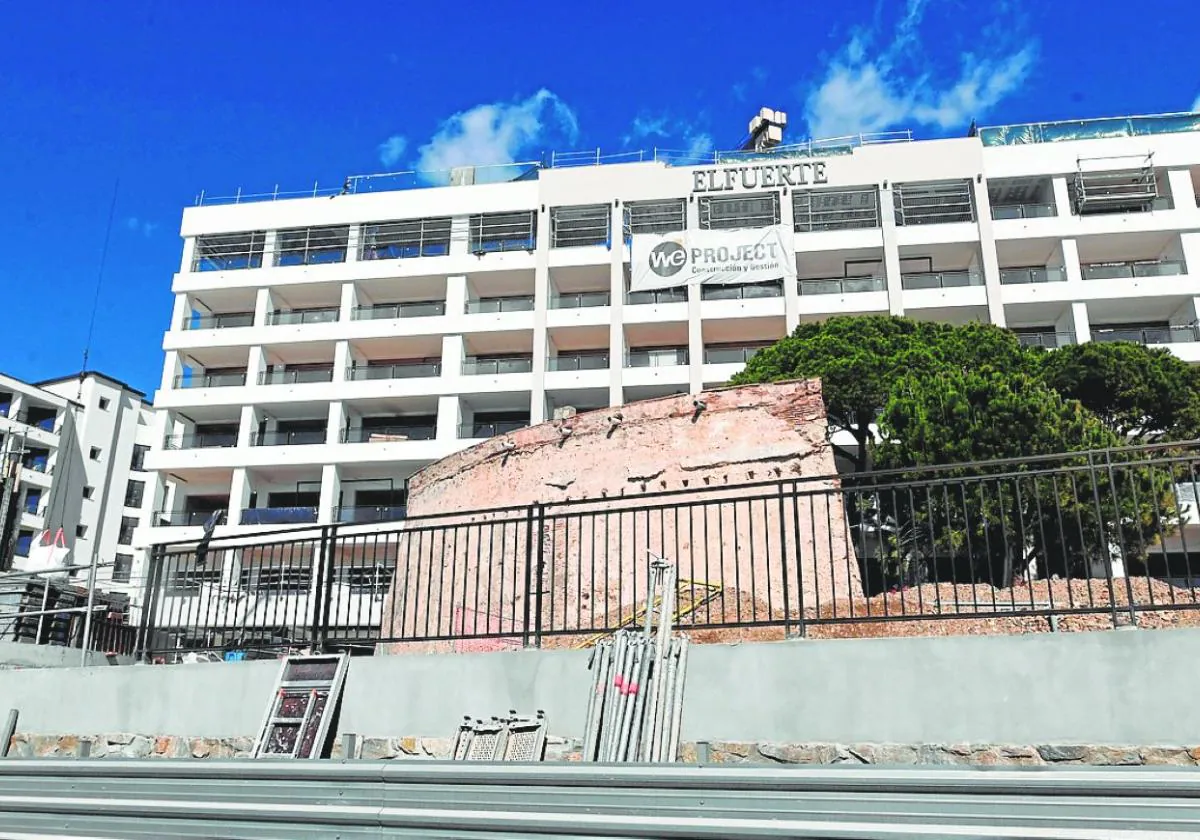Archaeological finds at El Fuerte shed light on Islamic and Roman Marbella
Some thirty professionals have been working for a year collating data on the dig at the hotel complex
Joaquina Dueñas
Marbella
Jueves, 6 de abril 2023
Archaeological excavations on the site of the El Fuerte hotel have revealed important findings that shed light on medieval Marbella. Triggered by remodelling work at the hotel, which stands next to the old San Luis fort, the remains uncovered by the dig include burial grounds from both the Islamic and Roman periods.
José Antonio Valiente De Santis, the director of the dig, told SUR that this project will "write another page of the history of Marbella".
During the last year a team of ten archaeologists and about twenty diggers have been working to excavate the whole site with care. Back in 2017 the first exploratory digs were carried out at San Luis fort, listed as, a BIC (asset of cultural interest), flagging possible geophysical anomalies. The greatest surprise came in 2022 when the dig began in earnest. The regional government marked the entire plot to be "archaeologically significant".
"That's when we first began to locate the medieval Islamic cemetery and, later, the Roman one," explained José Antonio. What began as a small-scale dig to document more of the history of the fort has become a historically significant and extensive excavation "with which gaps are going to be filled in the town's history", he added.
To date the fieldwork has produced thousands of notes and photographs and a huge number of finds, so José Antonio is working on an initial hypotheses to be verified once all data and finds have been processed. "We believe that we have uncovered a diachrony [evolution of language] for the entire Islamic medieval period, which could enable us to collate useful data on the history of the town from the 8th to the 15th centuries," he said. He added that the Roman finds might date to the 2nd and 3rd centuries AD, although that is still under investigation.
"The Roman finds include a very wide range of pottery plates and bowls that help paint a chronological line of life in Marbella alongside burial treasures, near-intact Islamic ceramics, Roman and Phoenician coins, each highlighting different periods in history," he said.
Until now historians had theorised that the location of the Islamic medieval cemetery would be on the beach, but it had never been unearthed. Searches were conducted elsewhere, focusing on main routes out of the town. José Antonio explained that their discovery is in a textbook location as, in similar places between Algeciras and Malaga, "cemeteries on the beach were very common".
As for the Roman remains, he pointed out that the actual Roman town of Marbella has still not yet been found.
"It is not known where it really is; it continues to be a historical enigma. It's possible that in further excavations we'll find more of Marbella's urban layout in Roman times. What we have found so far are the tombs that indicate these are the inhabitants of Roman Marbella. We have the people, now to find their homes and businesses," he said. This is a tough undertaking, complicated by the significant real estate pressure that the town has experienced for decades. "There is very little land where you can really do research of this kind," he pointed out.
These findings mean that we can learn more about these early people of Marbella. "We can learn about their lives, their work, their health, their diet, their gender and their relationships. Human bones reveal so much about how we lived," explained José Antonio.
This archaeological gem also came as a surprise to those responsible for the Fort of San Luis and for the hotel complex that bears its name - El Fuerte.
They stated, "We are very happy that they found this site. As with all sites unearthed in recent years in different parts of the town, each new discovery helps us to be better acquainted with Marbella's past."
